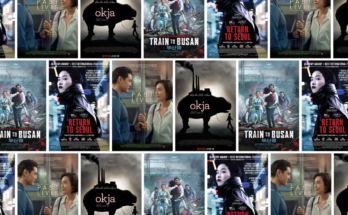Introduction: Why Korean Cinema’s Villains Stand Out
When you think of great movie villains, who comes to mind? Darth Vader? The Joker? While Hollywood has given us some iconic antagonists, Korean cinema has quietly been crafting some of the most complex, chilling, and unforgettable villains in modern film history. From cold-blooded serial killers to morally ambiguous masterminds, Korean filmmakers have a knack for creating villains that linger in your mind long after the credits roll.
But what makes these villains so memorable? Is it their psychological depth, their cultural significance, or simply the brilliant performances behind them? In this article, we’ll dive into the world of Korean cinema to explore the most iconic villains and what makes them so compelling.
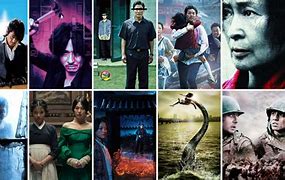
The Rise of Korean Cinema: A Breeding Ground for Complex Villai
A Brief History of Korean Film
Korean cinema has come a long way since its early days. From the golden age of the 1950s to the Korean New Wave of the 1990s, the industry has consistently pushed boundaries in storytelling and character development. This evolution has paved the way for some of the most nuanced villains in film history.
Why Korean Villains Are Different
Unlike traditional Hollywood villains, who are often one-dimensional “bad guys,” Korean antagonists are layered and multifaceted. They’re not just evil for the sake of being evil; they’re products of their environment, shaped by societal pressures, personal trauma, and moral dilemmas.
The Most Iconic Villains in Korean Cinema
1. Choi Min-sik as Woo-jin in Oldboy
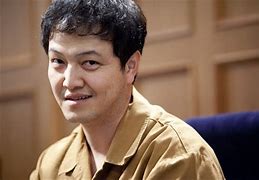
The Tragic Antihero
Choi Min-sik’s portrayal of Woo-jin in Park Chan-wook’s Oldboy is a masterclass in villainy. Woo-jin is not just a villain; he’s a man consumed by revenge, driven by a traumatic past. His calm demeanor and calculated actions make him all the more terrifying.
Why He’s Unforgettable
Woo-jin’s complexity lies in his humanity. He’s not a monster; he’s a broken man seeking justice in the most twisted way possible. This moral ambiguity makes him one of the most compelling villains in cinema.
2. Kim Hye-ja as Mother in Mother
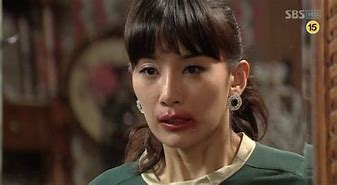
The Dark Side of Maternal Love
In Bong Joon-ho’s Mother, Kim Hye-ja plays a mother willing to do anything to protect her son. While not a traditional villain, her actions blur the line between right and wrong, making her a fascinating antagonist.
The Moral Gray Area
What makes Kim Hye-ja’s character so chilling is her relatability. Her love for her son is universal, but her methods are horrifying. This duality forces viewers to question their own moral compass.
3. Lee Byung-hun as Park Chang-yi in The Good, the Bad, the Weird
The Charismatic Outlaw
Lee Byung-hun’s Park Chang-yi is the epitome of a stylish, ruthless villain. With his sharp suits and sharper knives, he’s a character you can’t help but admire, even as he wreaks havoc.
Style Meets Substance
Park Chang-yi’s charm lies in his flair. He’s not just a villain; he’s a showman, making every scene he’s in unforgettable.
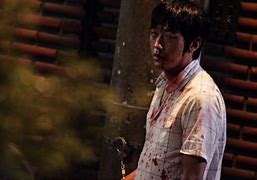
4. Ha Jung-woo as Jang Kyung-chul in The Chaser
The Terrifying Serial Killer
Ha Jung-woo’s portrayal of Jang Kyung-chul in The Chaser is bone-chilling. Based on a real-life serial killer, Jang is a monster who preys on the vulnerable, making him a truly horrifying antagonist.
The Banality of Evil
What makes Jang so terrifying is his ordinariness. He’s not a larger-than-life villain; he’s a man who blends into society, making his crimes all the more disturbing.
5. Song Kang-ho as Namgoong Minsoo in Snowpiercer
The Reluctant Villain
In Bong Joon-ho’s Snowpiercer, Song Kang-ho plays Namgoong Minsoo, a man forced into villainy by circumstance. His actions are driven by survival, not malice, adding layers to his character.
A Villain You Can Sympathize With
Namgoong’s complexity lies in his humanity. He’s not evil; he’s a victim of a broken system, making him a villain you can’t help but empathize with.
What Makes Korean Villains So Memorable?
Psychological Depth
Korean villains are often deeply psychological, with backstories that explain their actions. This depth makes them more than just antagonists; they’re fully realized characters.
Cultural Context
Many Korean villains are shaped by societal issues, such as class inequality, corruption, and family dynamics. This cultural context adds another layer of meaning to their actions.
Brilliant Performances
From Choi Min-sik to Song Kang-ho, Korean actors bring these villains to life with unforgettable performances. Their ability to convey complex emotions is a key factor in what makes these characters so compelling.
The Impact of Korean Villains on Global Cinema
Influencing Hollywood
Korean cinema has had a significant impact on Hollywood, with films like Oldboy and Parasite inspiring Western filmmakers. This influence is particularly evident in the way villains are portrayed.
Redefining Villainy
Korean cinema has redefined what it means to be a villain. By focusing on complexity and humanity, it has challenged traditional notions of good and evil.
Read This: Royal Regalia: A Timeless Tapestry of Power and Elegance
Conclusion: Why Korean Villains Stay with Us
Korean cinema has given us some of the most unforgettable villains in film history. From the tragic Woo-jin in Oldboy to the chilling Jang Kyung-chul in The Chaser, these characters are more than just antagonists; they’re reflections of the human condition.
What makes them so memorable is their complexity. They’re not just evil; they’re human, shaped by their experiences and driven by their desires. This depth, combined with brilliant performances and cultural relevance, ensures that these villains will continue to haunt and fascinate audiences for years to come.
FAQs
1. Who is the most iconic villain in Korean cinema?
While opinions vary, Choi Min-sik’s Woo-jin in Oldboy is often considered the most iconic due to his psychological depth and tragic backstory.
2. Why are Korean villains so complex?
Korean villains are often shaped by societal issues and personal trauma, making them more nuanced and relatable than traditional antagonists.
3. How has Korean cinema influenced Hollywood?
Korean films like Oldboy and Parasite have inspired Hollywood filmmakers, particularly in their portrayal of complex villains and social commentary.
4. What role do actors play in making villains memorable?
Actors like Choi Min-sik and Song Kang-ho bring these characters to life with powerful performances, adding layers of emotion and complexity.
5. Are Korean villains always evil?
Not necessarily. Many Korean villains are morally ambiguous, driven by circumstances rather than pure malice, making them more relatable and thought-provoking.
Meta Description: Explore the most iconic villains in Korean cinema, their psychological depth, and cultural impact. Discover why these antagonists are unforgettable in this deep dive into Korean films.
